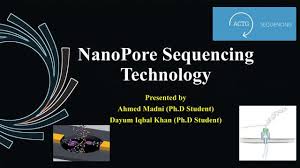IISc Introduces “STRONG” for Nanopore Research
Introduction: IISc’s Groundbreaking Research on Nanopores
The Indian Institute of Science (IISc), one of India’s premier research institutions, has recently introduced a significant innovation for nanopore research. Named STRONG (Solid-State Tunable Nanopore for Genomics), this cutting-edge technology aims to revolutionize genomics research and molecular biology. STRONG is designed to enhance the accuracy and efficiency of nanopore sequencing, a process that is pivotal in decoding genetic material. With its introduction, IISc is set to contribute significantly to the global scientific community’s efforts in advancing genetic research.
What is Nanopore Sequencing?
Nanopore sequencing involves passing a DNA or RNA strand through a tiny pore to read its sequence. The technology has gained prominence due to its ability to sequence long DNA fragments and provide real-time data. However, the process has faced challenges regarding accuracy, sensitivity, and speed. STRONG aims to address these limitations by introducing a more robust and tunable nanopore, thus improving the quality of sequencing and opening doors for various applications in biotechnology and healthcare.
Features of STRONG Technology
STRONG stands out for its unique solid-state structure, which allows precise control over the size and shape of the nanopore. This level of tunability means that the device can be optimized for different types of genomic samples, thus broadening its applicability. STRONG also promises to deliver faster sequencing results, making it a potential game-changer for large-scale genomic studies and diagnostics.
The Role of IISc in Nanopore Research
IISc’s work on STRONG reflects the institution’s ongoing commitment to advancing scientific research and innovation in India. With this new technology, IISc strengthens its position as a leader in global research and development, particularly in the field of biotechnology. The technology’s potential to improve genomic sequencing could lead to significant breakthroughs in personalized medicine, disease prevention, and the understanding of genetic disorders.

Why This News is Important
Advancing Biotechnology and Healthcare
The introduction of STRONG by IISc marks a significant step in the field of biotechnology. Nanopore sequencing is crucial for various applications in genomics, particularly for personalized medicine. With STRONG, the accuracy and efficiency of sequencing could dramatically improve, helping scientists gain deeper insights into genetic disorders and human diseases. This advancement holds the potential to revolutionize diagnostic practices and treatments, making healthcare more tailored and effective.
India’s Growing Role in Global Scientific Research
India has increasingly become a hub for scientific innovation and research. The development of STRONG highlights India’s capabilities in cutting-edge technologies and positions the country as a significant player in the global biotechnology and genomics field. With research institutions like IISc leading the way, India is set to contribute not only to the global scientific community but also to international healthcare solutions.
Implications for Government Exams and Future Research
For students preparing for government exams, especially in sectors like biotechnology, healthcare, and research development, understanding technological advancements like STRONG is crucial. It reflects the importance of continuous scientific innovation in various fields that directly impact public health and policy. The role of Indian institutions in shaping global scientific trends could also be a significant area of focus for civil service exams.
Historical Context: Background of Nanopore Sequencing
Nanopore sequencing technology was first introduced in the early 2000s and has since become a vital tool in genomic research. The technique utilizes a biological or synthetic nanopore to detect individual nucleotides as a strand of DNA or RNA passes through the pore. The ability to sequence long DNA fragments in real-time has made it an invaluable resource for researchers studying genetics, genomics, and molecular biology.
However, early nanopore technologies faced significant challenges such as limited accuracy, low throughput, and difficulties in controlling the pore structure. These issues limited its use in high-demand, large-scale genomic sequencing projects. The development of solid-state nanopores, such as STRONG, is a crucial breakthrough that addresses these limitations. STRONG’s tunable features provide precise control over the sequencing process, enabling faster and more reliable results.
IISc’s work on STRONG follows a long tradition of research excellence in India, where institutions have made significant contributions to the fields of biotechnology, nanotechnology, and genomics. The advancement of nanopore sequencing aligns with global efforts to decode the human genome, improve diagnostic methods, and enhance treatment plans based on genetic insights.
Key Takeaways from IISc’s STRONG Nanopore Research
| Serial No. | Key Takeaway |
|---|---|
| 1 | IISc has introduced STRONG (Solid-State Tunable Nanopore for Genomics), a breakthrough in nanopore sequencing technology. |
| 2 | STRONG offers enhanced accuracy and faster sequencing, addressing limitations faced by traditional nanopore technologies. |
| 3 | The technology can be tuned to optimize genomic sequencing for various types of samples, making it highly versatile. |
| 4 | STRONG has the potential to revolutionize genomics research, particularly in personalized medicine and disease prevention. |
| 5 | IISc’s contribution to nanopore research strengthens India’s position in global scientific and biotechnology innovations. |
Important FAQs for Students from this News
What is STRONG introduced by IISc?
- STRONG (Solid-State Tunable Nanopore for Genomics) is a new nanopore sequencing technology developed by the Indian Institute of Science (IISc) to enhance the accuracy, speed, and efficiency of genomic sequencing.
How does STRONG technology work?
- STRONG utilizes a solid-state nanopore that can be tuned for different genomic samples, providing precise control over sequencing. This leads to faster, more accurate, and efficient sequencing of DNA and RNA.
Why is nanopore sequencing important?
- Nanopore sequencing allows scientists to read long strands of DNA or RNA in real-time, making it crucial for studying genomics, genetics, and molecular biology. It has applications in personalized medicine, disease research, and diagnostics.
What makes STRONG different from other nanopore technologies?
- STRONG’s solid-state structure and tunable nanopores provide greater control over the sequencing process, leading to improved accuracy and faster sequencing compared to traditional nanopore technologies.
How does STRONG benefit genomic research?
- By enhancing the precision and speed of genomic sequencing, STRONG helps accelerate research in areas like genetic disorders, disease prevention, and personalized medicine, potentially revolutionizing the healthcare industry.
Some Important Current Affairs Links













